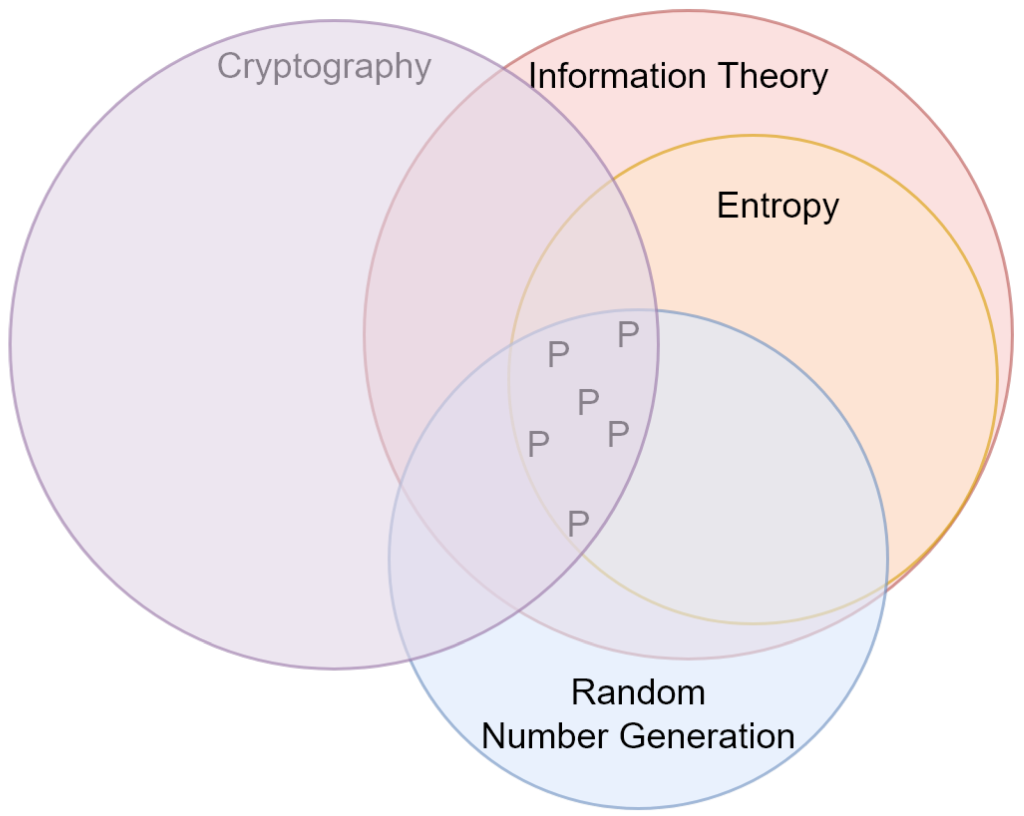
[ad_1]
Unlocking the Future of Encryption: The Rise of Entropy Cryptography
In today’s technologically advanced world, where data breaches are becoming more common and privacy concerns are at an all-time high, encryption has become an integral part of ensuring secure communication and information storage. As hackers and cybercriminals become more sophisticated, the future of encryption lies in the evolution of a new and promising field called Entropy Cryptography.

Entropy Cryptography is a groundbreaking concept that takes advantage of the randomness found in natural processes to generate encryption keys and secure data transmission. It is based on the principle that natural phenomena are inherently unpredictable and that this unpredictability can be harnessed to create unbreakable encryption algorithms.
Traditional encryption methods rely on mathematical computations, such as prime factorization or discrete logarithms, to generate encryption keys. These methods, however, are not entirely foolproof, as advancements in computing power and quantum technology are challenging their reliability. Entropy Cryptography offers a unique solution to this problem by utilizing the inherent randomness found in physical systems.
One such used physical system is atmospheric noise, also known as “white noise.” Atmospheric noise is a random signal that includes radio waves generated by natural phenomena such as lightning discharges and cosmic microwave background radiation. By measuring and analyzing this noise, researchers can extract random data or “entropy” that can be transformed into encryption keys or used directly.
Understanding the Difference: Cryptology vs Cryptography Demystified
The advantage of employing entropy from atmospheric noise lies in its unpredictability. Unlike computer-generated randomness, atmospheric noise is influenced by various uncontrollable factors, making it extremely difficult to replicate or predict. This unpredictability acts as a safeguard against potential attacks, as even the most advanced algorithms and computing power cannot decipher or predict the encryption keys generated from atmospheric noise.
The use of entropy in cryptography is not limited to atmospheric noise; other natural phenomena such as radioactive decay, quantum random fluctuations, and even the movement of electrons in a conductor can be leveraged to create entropy-based encryption systems. These methods ensure a more secure and reliable form of cryptographic protection as they take advantage of the inherent uncertainty and randomness of the physical world.
Entropy Cryptography goes beyond traditional encryption by providing not only secure communication channels but also protection against potential quantum computing threats. Quantum computers present a significant challenge to conventional encryption methods as they can solve complex mathematical problems at an unprecedented rate. By utilizing the laws of quantum physics, these computers can potentially break encryption algorithms that were once considered unbreakable.
However, with entropy-based cryptography, even quantum computers face insurmountable challenges. The inherent randomness of natural systems used in entropy cryptography poses difficulties for quantum computers as they rely on predictable calculations. Attempting to break an entropy-based encryption system with a quantum computer becomes an exercise in futility due to the unpredictability and uncontrollable nature of the entropy.
The rise of entropy cryptography opens the door to a wide range of applications that require robust and unbreakable encryption. Industries such as finance, healthcare, government, and telecommunications can benefit greatly from this innovation. Securing sensitive data, protecting privacy, and guarding against cyber threats become more effective and reliable with an entropy-based encryption system.
However, as with any emerging technology, there are challenges to be addressed before entropy cryptography can become fully integrated into our digital infrastructure. One such challenge lies in the scalability of entropy sources. Ensuring a sufficient supply of entropy to cater to the increasing demand for secure encryption is crucial. Researchers are actively working towards developing efficient and scalable ways to harvest and distribute entropy from various natural sources.
Another challenge lies in the adoption and implementation of entropy cryptography protocols. It will require collaboration between governments, industries, and researchers to establish standards and best practices for entropy-based encryption. Additionally, educating users about the benefits and importance of this new encryption method will be vital in fostering trust and encouraging widespread adoption.
In conclusion, as the threats to data security and privacy grow, so does the need for more advanced and resilient encryption methods. Entropy Cryptography is emerging as a promising solution by harnessing the inherent randomness of natural systems to create unbreakable encryption keys. By embracing the unpredictability of the physical world, we can unlock a future where data is secured with unparalleled strength. The rise of entropy cryptography offers new possibilities for safeguarding sensitive information and ensuring a safer digital future.
[ad_2]







